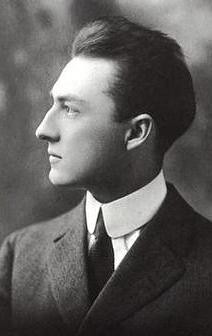I spend the next several weeks reading, reading, reading. This contest is almost a Rorschach of contemporary American poetry. In spite of the name William Carlos Williams attached to the award and the prohibition against books from trade publishers, there is no single aesthetic spin to what has been sent in. There are volumes written by World War Two veterans about their experiences in that war, new formalists, long narratives, haiku poets who only send their works to journals that specialize in that form, every manner of post-avant and anti-avant combined. More than a few of these are by poets – and in some instances presses – who are openly at odds with everything William Carlos Williams ever stood for. In such circumstances, what exactly do they think they’re doing in such a contest? Is his name up there simply as Famous Dead Guy? Or, more likely, it’s really a sign that the Poetry Society of America has not lived up to the stewardship of this award, using far too many judges over the years who were themselves opposed to the Pound-Williams-Zukofsky tradition.
My method is to take three or four books that feel, on first glance, pretty different from one another and to read back and forth through them until they’re done. Then I allocate them into those stacks I described yesterday. Most of what I’m reading is fairly good. When I’m doing going through everything once, I look at my piles, all still stacked up on the blue bench in the foyer. There are 20 volumes in the “I want to give this book the prize” pile.
The reason I even have the second pile – books I know I need to reread just to be sure that they don’t really deserve to be in the first group also – is because I’m sure that there are poets – Robert Duncan in his prime would be a good example, but so would James Wright or John Berryman – whose work doesn’t always “click” on first reading, but which turns out to be of even greater value long term than the simple flashy book one can “get” as a single sitting, first time. There are roughly 50 books in this second pile. And it includes a wide range of poets including new formalists, soft surrealists, narrative poets
There are maybe 60 books in the third group, writers whose work strikes me – at least in these specific volumes – as at least decently crafted, but without any other larger driving idea or passion behind it. Again, there is no single aesthetic trend, just a general lack of ambition. You might be able to say that that is an aesthetic trend, in and of itself, tho I would say that’s very sad. And I don’t see any monk-like renunciations of the material world in the poetry here.
The last pile, that of books that are genuinely incompetent, has just five volumes in it. That’s it. Just five of the candidates nominated by their presses really appeared to be by writers without a clue. Does this mean that I really think that 97 percent of American poetry is, at the very least, competently written? Not really. I believe that the self-selection process accounts for a lot of this. First, you have to write enough work to warrant a book and persuade a publisher to take it on. Then they have to believe in your work strongly enough to submit it. Still, that a contest like this can get this much writing that doesn’t embarrass itself is really noteworthy.
Setting aside the last two stacks, I still have seventy books to think about. I decide I have to read them all one more time. I realize that I could make a case, a plausible one, for every one of these books winning this award. That there are at least seventy books worthy of such attention in any one year’s crop – not to mention those other volumes I held out on the basis of my relationship with their authors and those volumes that never got submitted – probably is the best assessment of the quality of writing that is taking place at this very moment. It’s really a stunning realization. At least it stunned me.






